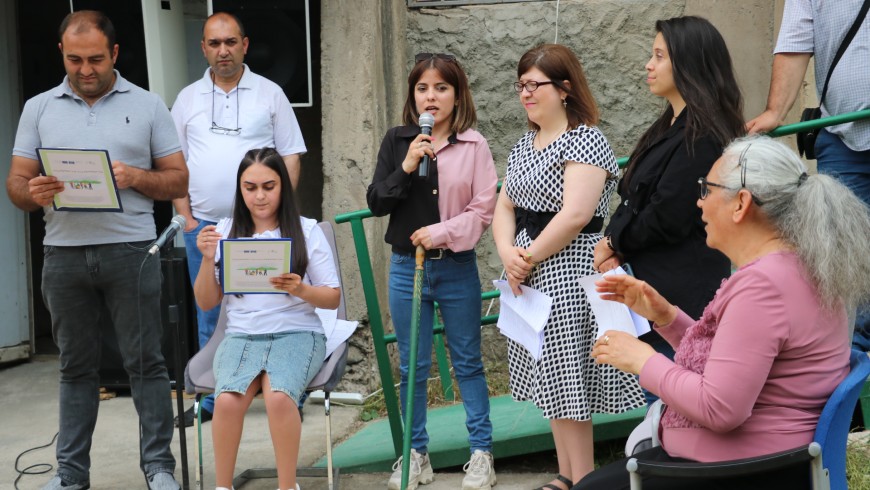The joint project "Strengthening the access to justice through non-judiciary redress mechanisms for victims of discrimination, hate crime and hate speech in Eastern Partnership countries," awarded two grants to Armenian NGOs in 2021, related specifically to support victims of discrimination in seeking redress at national level, increasing the public awareness on discrimination and hatred, and providing analytical tools for the policy makers and the public.
Activities under the grants were implemented from December 2021 to June 2022 and were focused on empowering Yezidi girls in the Armavir region to pursue education and also on empowering persons with disabilities residing in the Lori region - through raising the awareness and encouraging their inclusion in the society. Both actions were concluded with the final events presenting the achievements of our joint actions and planning further activities.
The photo exhibition concluding the action “Promoting Yezidi girls’ and women’s right to education in Armenia” implemented by Armavir Development Center was held on 24 May 2022. The event gathered the project beneficiaries, partners, and experts with the aim to reflect Yezidi girls’ dreams on their future and education, to help the girls speak up and make their voices heard by their families. The grantee representatives noted that the action encouraged the parents attitude change towards Yezidi girls’ further education.
On June 9 2022, in Vanadzor, the NGO EREO organised a Community Forum summing up the results of the action “Challenging stereotypes against disabled people through empowerment in Armenia”. The Community Forum hosted project beneficiaries, their family members, representatives from the local authorities and civil society organisations. The president of the EREO NGO, Anush Aslanyan, noted that project activities united persons with disabilities, their families, and other actors for common goal - inclusion for all members of society.
Both actions complemented awareness-raising and educational activities to shed a light to these important issues and proven that more equal and democratic societies can be built through the dialogue between diverse actors. In the words of the actions’ beneficiaries the grants helped them to be more conscious about their rights and opportunities and even vitally, equipped them with necessary skills to exploit their potential for better personal and professional goals.
These activities were implemented in the framework of the regional project “Strengthening the access to justice through non-judiciary redress mechanisms for victims of discrimination, hate crime and hate speech in Eastern Partnership countries,” funded by the European Union and the Council of Europe and implemented by the Council of Europe in their Partnership for Good Governance II 2019-2022.





